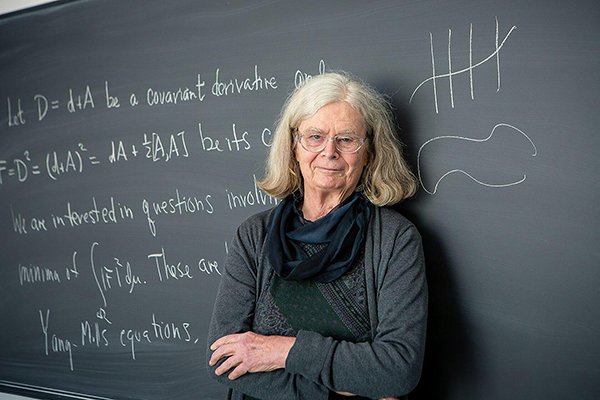During her 27 years as a professor at the University of Texas, Karen Uhlenbeck contributed to the formation of different math programs and served as a mentor to students and faculty. Now, she is being recognized internationally for her mathematics research.
Uhlenbeck is the first woman to receive the Abel Prize, a prestigious award that recognizes contributions to the field of mathematics that are of “extraordinary depth and influence,” according to the award’s website. His Majesty King Harald V of Norway will present Uhlenbeck with the prize, which also comes with a monetary award of $700,000, on May 21 in Oslo, Norway.
“I was pretty amazed,” said Uhlenbeck, professor emerita of mathematics and Sid W. Richardson Foundation regents chair in mathematics. “To quote a colleague of mine, John Tate, (who) received the Abel Prize … ‘I don’t know if I deserve it, but I’ll take it.’”
The Norwegian Academy of Science and Letters chose Uhlenbeck “for her pioneering achievements in geometric partial differential equations, gauge theory and integrable systems, and for the fundamental impact of her work on analysis, geometry and mathematical physics,” according to the Abel Prize website.
“It’s really for work that I did 30 or 40 years ago,” Uhlenbeck said. “It wasn’t in my sights.”
Uhlenbeck worked as a professor at UT from 1987 to 2014. During that time, she conducted groundbreaking research and mentored graduate students, said Dan Knopf, associate dean for graduate education in the College of Natural Sciences.
“Her arrival really began a period in which we were able to raise the research profile of the department,” Knopf said. “In particular, she was an outstanding mentor to young faculty.”
During her time at UT, Uhlenbeck helped form different math programs, including the Distinguished Women in Mathematics Lecture Series. This program allows female mathematics students to connect with successful women in the field.
“(Uhlenbeck winning the Abel Prize) means a lot,” said Eliza O’Reilly, lead organizer of the lecture series and a mathematics graduate student. “I think it just sort of validates how women really belong in this field, and she absolutely did.”
Uhlenbeck said she felt a responsibility to promote more women going into the field of mathematics.
“That’s a very important part in my role in mathematics,” Uhlenbeck said. “I certainly felt like I should encourage (the female mathematicians), and I hope that I did.”




















